 Since 2017, the Solomon Cramer Fund has been sending young people to camp by granting scholarship funds to United Methodist conference camp/retreat ministries. Through these grants, camps have developed innovative programs that reach new people in new places, widening the circle of leadership and campership.
Since 2017, the Solomon Cramer Fund has been sending young people to camp by granting scholarship funds to United Methodist conference camp/retreat ministries. Through these grants, camps have developed innovative programs that reach new people in new places, widening the circle of leadership and campership.
Scholarship grants from the Solomon Cramer Fund encourage us to consider the breadth of our ministries by focusing on the following four priorities:
-
Experiences that minister with youth living in poverty
-
The intentional development of young people for spiritual leadership and/or leadership with Camp & Retreat Ministries
-
Camp experiences that collaborate with local churches and agencies in processes of faith formation
-
Opportunities for increasing racial/ethnic diversity within ministry participation and leadership.
Special consideration is given to Camp & Retreat Ministries that focus on more than one of those priorities and that are launching new opportunities.
Eight programs received Solomon Cramer Fund grants in 2022:
Connect-2-Camp
Connect-2-Camp was a new initiative for Quinipet Camp & Retreat Center and the NY Annual Conference. The hope was for this project to connect the local UMC with young, diverse families, especially those who may not have otherwise had the opportunity to go to camp or feel called to the church. Through the traditional fun of camp we hoped our campers would make connections with each other as well as their faith. This introduction of local young families to the Cornerstone UMC was intended to make them feel more comfortable in that space and to feel welcomed. Another important outcome was to encourage social and emotional development through meaningful, fun programming. Ideally, participants would make connections in their daily life to their Christian formation.
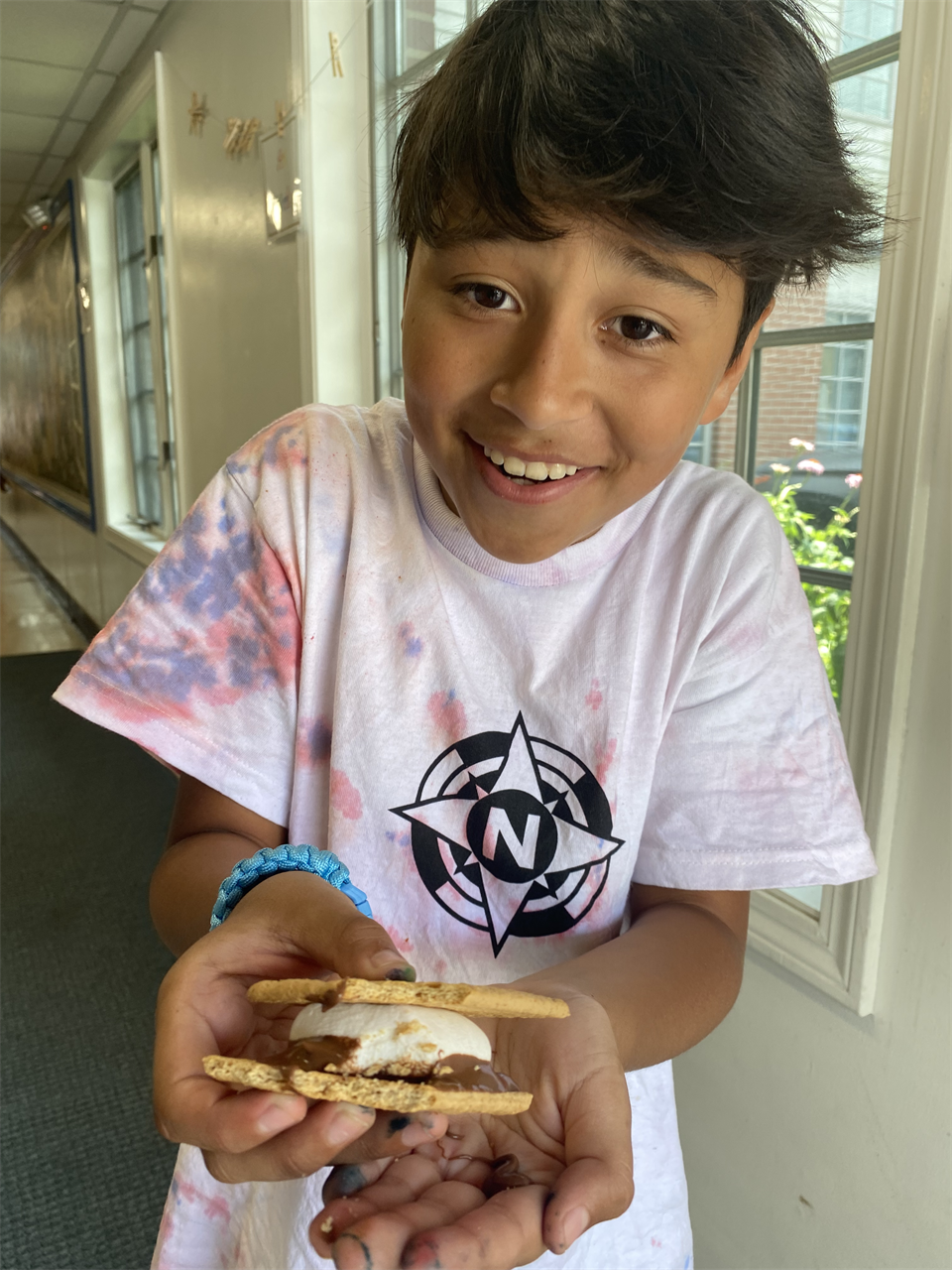 Program Director Vernessa Kingsbury reflects, “There is a saying in camping ministry, ‘it only takes a week to change a child’s life,’ and Connect-2-Camp reconfirmed our faith in this sentiment. In only five days, we watched 25 children blossom into unbelievably confident, expressive, and engaged members of their community. Several of our campers came to us knowing little to no English, two of whom had only just moved to the United States in the last month. Every single one of those campers was an integral part of the community we created, each bringing a different cultural and spiritual perspective and a unique voice! Without any one of them C2C would not have been the same, and it is for that reason that the Solomon Cramer Grant was an incredible blessing. The Quinipet team is looking forward to recreating this model of friendship, creation care, and Christian formation again and again in different communities in need.
Program Director Vernessa Kingsbury reflects, “There is a saying in camping ministry, ‘it only takes a week to change a child’s life,’ and Connect-2-Camp reconfirmed our faith in this sentiment. In only five days, we watched 25 children blossom into unbelievably confident, expressive, and engaged members of their community. Several of our campers came to us knowing little to no English, two of whom had only just moved to the United States in the last month. Every single one of those campers was an integral part of the community we created, each bringing a different cultural and spiritual perspective and a unique voice! Without any one of them C2C would not have been the same, and it is for that reason that the Solomon Cramer Grant was an incredible blessing. The Quinipet team is looking forward to recreating this model of friendship, creation care, and Christian formation again and again in different communities in need.
Open Arms Initiative
Pocono Plateau Camp & Retreat Center in Eastern PA received scholarship funds for youth from Methodist Services in Philadelphia. The funds provided the opportunity to provide a residential camp experience for three youth who had never camped or been in the Pocono Mountains before. The grant provided not only registration fees, but transportation, sleeping bags, funds for camp store, flashlights, toiletries, and a reusable water bottle for three campers. Two of these campers had never been away from home for a whole week. They experienced growth as they learned independence. They enjoyed swimming in the shallow part of the lake, crafts, and trying new things like the climbing tower. On the final campfire vespers of his camp week, one of the Open Arms campers stepped forward to accept Jesus into his life. He asked a lot of questions during the week and was very thoughtful about wanting to learn more.
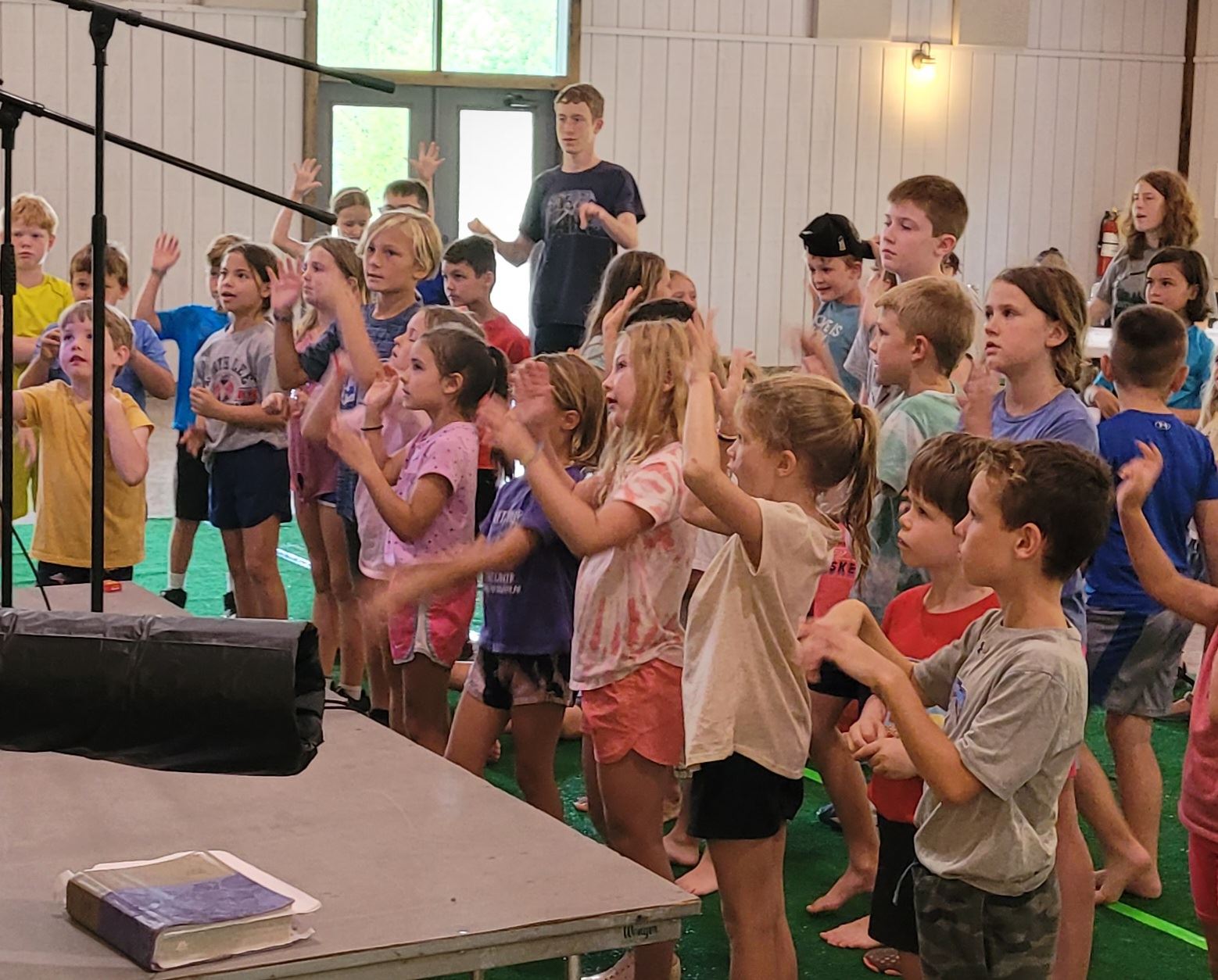 Wonders in the Woods Camp
Wonders in the Woods Camp
This program at Johnston Woods (TN) provided gospel centered camp experiences to children in diverse economic experiences while providing leadership training to young adults in ministry and discipleship. The camp partnered with the Unity Center, an afterschool program that serves children from lower incomes and diverse populations, and Broad Street UMC. Three young adult leaders received ministry leadership training and college scholarships. Forty-two campers who otherwise would not be able to afford camp received financial aid to participate in the program, which also provided healthy snacks and field trips to places such as Red Clay State Park, where we learned about Native American culture.
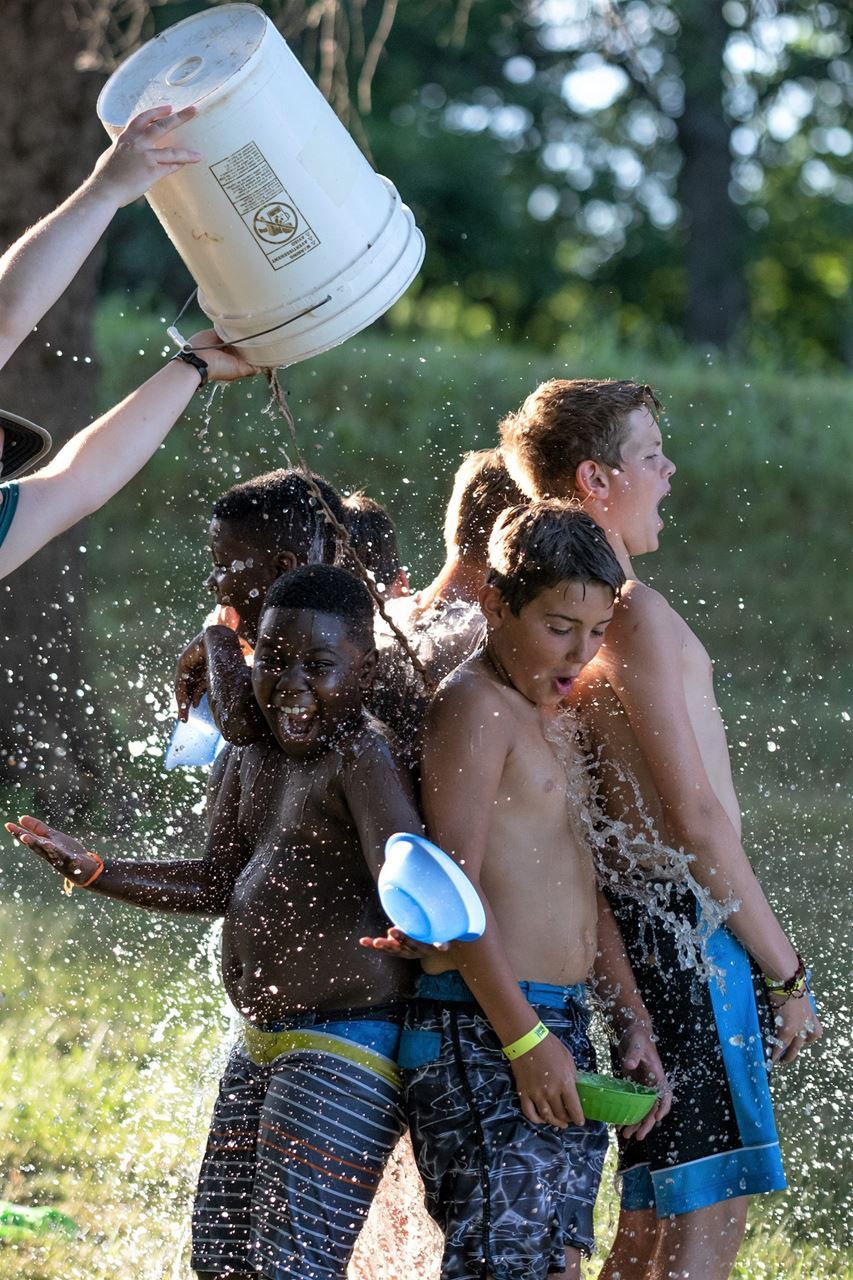 Brooklyn UMC/North UMC Partnership
Brooklyn UMC/North UMC Partnership
Camp Koronis (MN) provided lower-income children and youth from Brooklyn UMC, particularly those from the Liberian/West African congregation, a safe, wholesome, spiritual uplifting, cross-cultural, outdoor-oriented summer camp experience. The grant provided transportation for 33 campers who otherwise would not have a way to attend camp.
HOPE Camp
HOPE (Helping Overcome Problems Everyday) Camp at Jumonville (PA) has a goal to make sure each camper knows that they are loved. The program serves children who live in poverty or who may be exposed to high risk behaviors in their daily lives, teaching them life skills needed to become thriving individuals, despite the circumstances and trials that they have experienced. The camp also works to connect the campers with a church nearby to continue to strengthen the connection and maintain their relationship with the Lord.
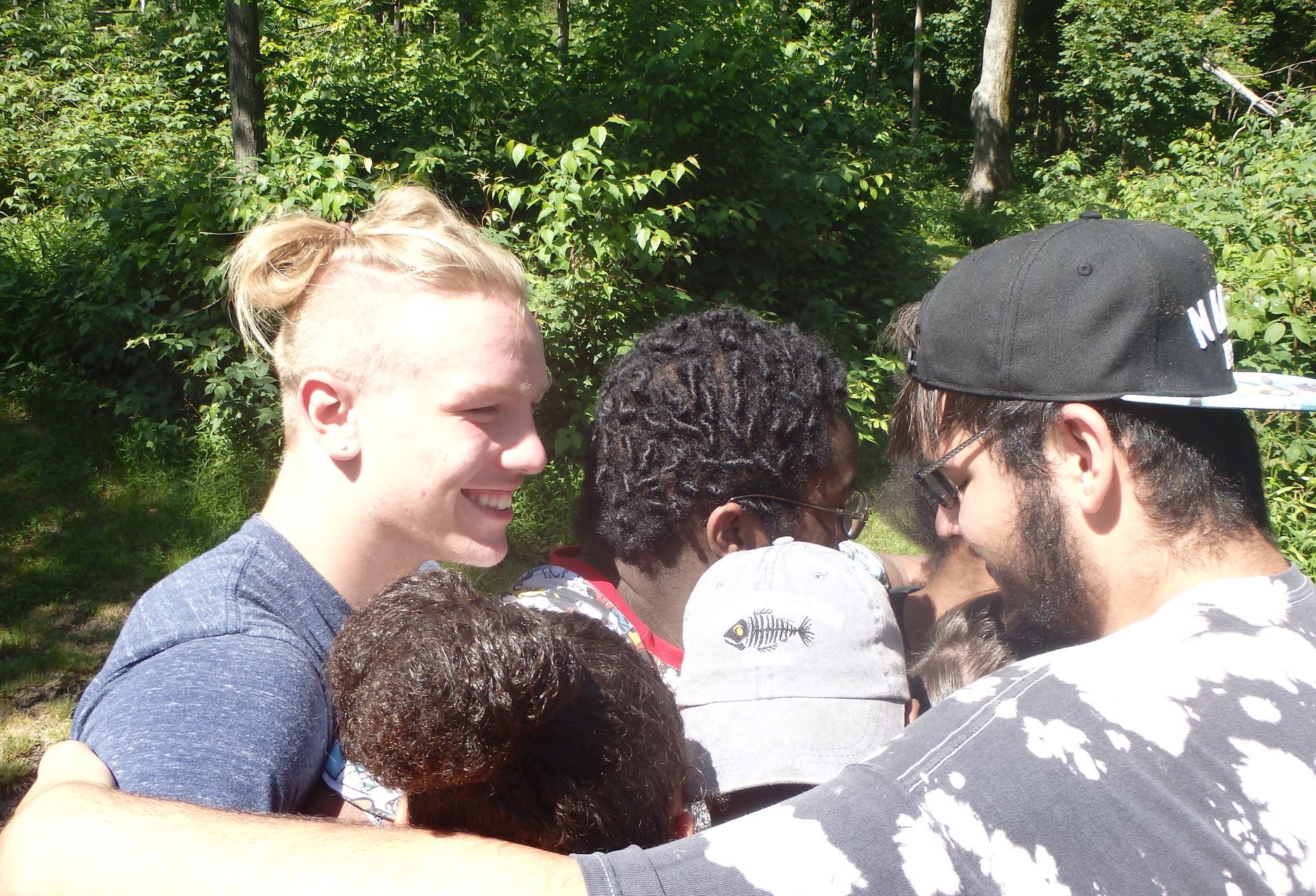 This year, the grant funded 5 participants in HOPE Camp. Additionally, two senior high campers attended and excelled in Jumonville’s CIT program. Two other senior high campers expressed an interest in working on summer staff for 2023. Those same campers were observed volunteering at the dish room counter on several occasions without being asked. They just saw a need and decided to help out. HOPE Camp isn’t just providing positive camper experiences, it is raising up servant leaders.
This year, the grant funded 5 participants in HOPE Camp. Additionally, two senior high campers attended and excelled in Jumonville’s CIT program. Two other senior high campers expressed an interest in working on summer staff for 2023. Those same campers were observed volunteering at the dish room counter on several occasions without being asked. They just saw a need and decided to help out. HOPE Camp isn’t just providing positive camper experiences, it is raising up servant leaders.
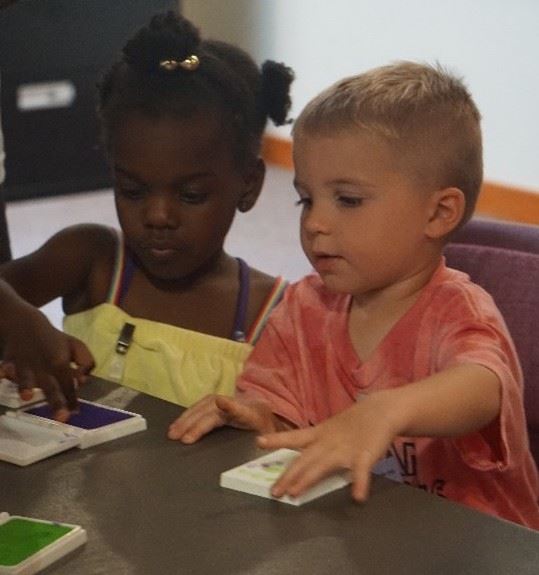 Camps in the Community
Camps in the Community
West Ohio Camps in the Community sought to provide camp ministry experiences in marginalized communities while also bridging the gap in summer staff leadership from these communities. In 2022 the project launched in four locations and in partnership with a historically black college. The grant helped to bring a safe and engaging camping experience to children and families who have never experienced camping, beginning to build authentic relationships with new communities. Over 30% of the campers are African American or Black, and for the first time, they were able to see counselors just like them leading, worshiping, and caring about them. The principal of one elementary school that was a program partner said, "You have been able to provide an experience for my students to be kids, learn how to work together, have fun, and show care and compassion to others. I cannot wait until next year." A summer counselor stated, "I have grown more than I could have ever imagined this summer. I've done things I never thought I could and I've grown closer to God than I even thought was possible."
LEAD Camp
LEAD Camp is a leadership development program for middle- through high-school/graduates in the Oklahoma Conference. It’s focus is on creating leaders with skills that will transfer across camp leadership, youth group leadership, community, church, private and public sectors. LEAD is unique because it centers around concrete observable skills—what effective leaders DO and SAY that make them effective—skills that can be observed, taught and reinforced. It features an 8-year development plan, with core leadership skills covered in an intentional progression, including a camp experience and year-round activities.
The 2023 Solomon Cramer Grant application is open now through Friday, March 24th, so act now to plan your mission-driven program for this coming summer season. Apply now

